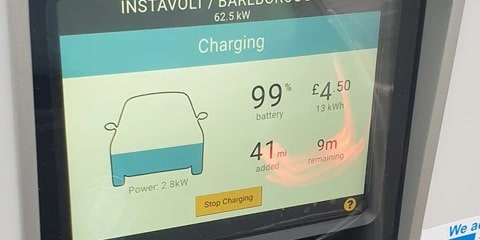In an effort to lower the costs related to charging an electric vehicle, the RAC and EV advocacy group FairCharge have urged the UK government to decouple electricity wholesale rates from gas to help reduce the costs of charging an electric vehicle.
The gas market determines wholesale electricity pricing and over the past year, this has contributed to a number of problems in the UK, including a crisis in the cost of living and the financial burden of many vulnerable homes and commercial enterprises. As a result, electricity prices have risen dramatically in the UK. This has had a significant influence on EV charging networks, with many needing to regularly increase their rates as a result of rising gas prices.
The UK recognises renewable energy as one of the most affordable ways to produce electricity. Nevertheless, because this is still linked to and impacted by gas prices, businesses and residents in the UK have not been able to take advantage of this lower pricing.
The effect of the cost-of-living problem and the impact that this may have on EV adoption, is a source of concern in the EV sector. Many prospective drivers might postpone their choice to switch to an EV because of increasing energy costs despite the comparative costs still being cheaper. High charging costs brought on by the high wholesale energy prices are having an effect on the perception that fuelling a car with electricity is more expensive than diesel or petrol.
This perception explains why it is crucial to separate the pricing of gas and electricity. The government has been urged to publish the findings of its Review of Electricity Market Arrangements, which had its consultation period concluded in October 2022.
The Review of Electricity Market Arrangements considered a number of changes, including providing consumers with incentives to access energy at lower prices when demand is low, reforming the capacity market to increase the participation of low carbon flexibility technologies, and decoupling the price of fossil fuels globally from the cost of power generated by less expensive renewable sources. The Department for Business, Energy and Industrial Strategy claims that these modifications will make people more aware of the benefits of renewable technologies and the cost benefits of charging an EV compared to an internal combustion vehicle.



